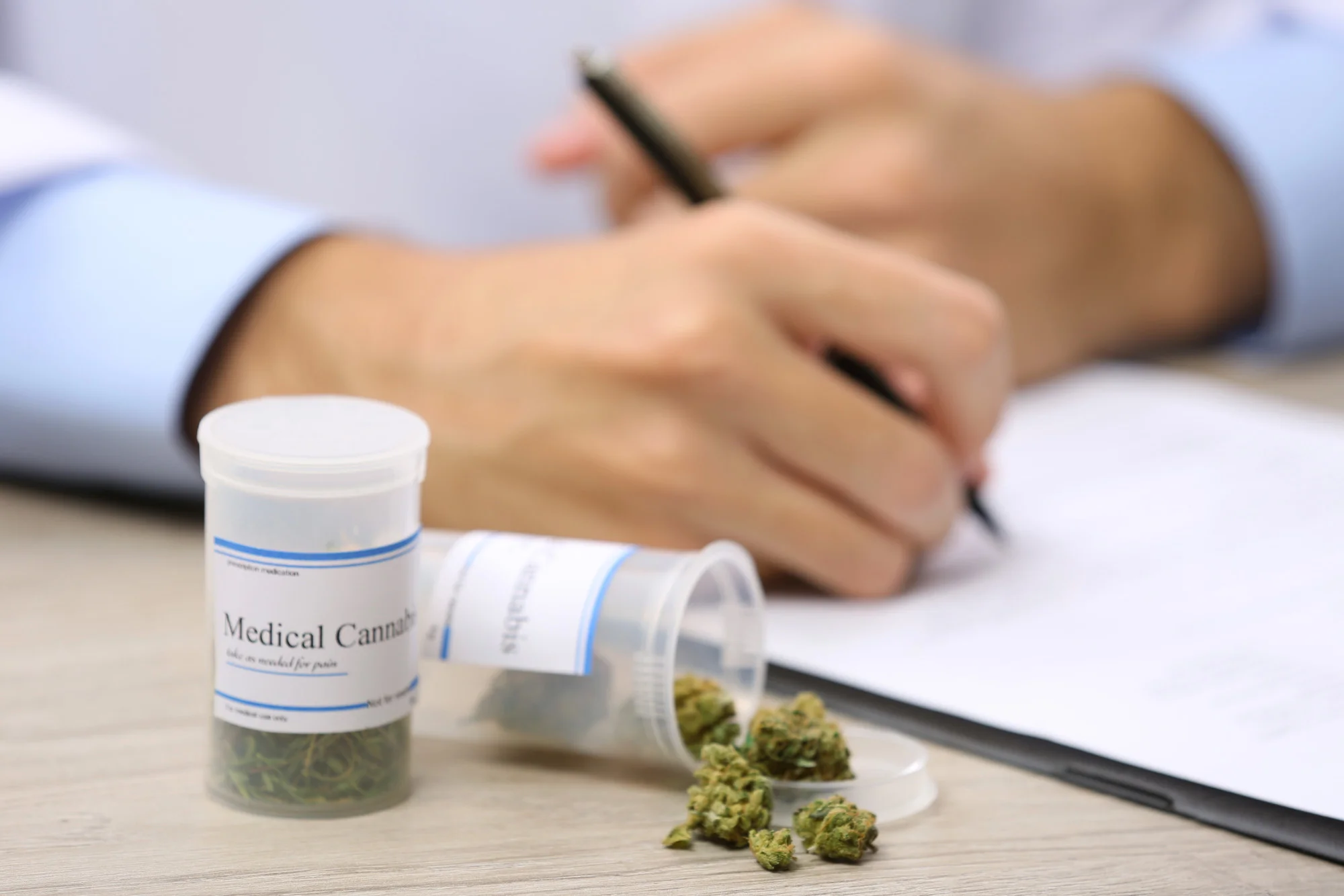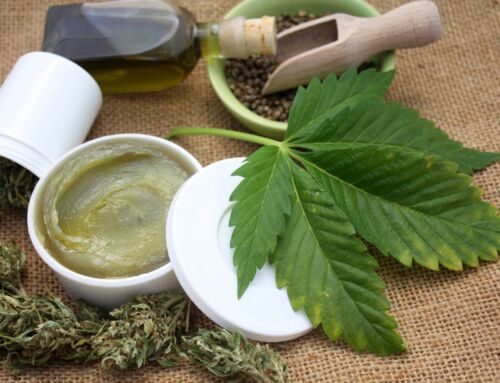Did you know that one out of forty-five Missourians uses marijuana to treat a medical condition?
Have you ever wondered if medical cannabis could be the right treatment for you?
Citizens of Missouri voted to legalize cannabis for medical use in 2018. Today, patients who qualify may request a medical marijuana prescription.
For many patients, medical marijuana sustainably improves their quality of life. In some cases, patients prefer cannabis because it has few side effects.
If you’re struggling with a hard-to-treat condition, and you live in Missouri, consider applying for a medical marijuana card (MO). You are eligible for medical cannabis if:
- You have a health condition in one of eleven qualifying categories
- You receive treatment from a licensed, certified physician
- You are a legal adult or have the consent of your legal guardian
Yet, medical marijuana isn’t the best choice for everyone. It’s important to choose medical marijuana because you believe it’s the best way to treat your condition.
This guide explores the most common reasons patients choose medical marijuana. With it, you can weigh the potential benefits and drawbacks cannabis offers in different cases. Then, decide if medical marijuana is right for you.
Key Reasons to Get a Medical Marijuana Card (MO)
A medical marijuana card is a way to purchase marijuana you’ve been legally prescribed. It’s easier than ever to apply for a medical marijuana card. Missourians can even apply online from home.
People pursue medical marijuana as a treatment option for a variety of reasons. For most patients, the reasons fall into four categories:
- It’s the most effective way to treat their conditions
- It’s safer than other treatment options
- It’s legal
- They can choose from a variety of strains and consumption methods
Before you fill out a medical marijuana application, it’s wise to learn about your specific condition. Then, listen to your physician to learn what cannabis does to treat this condition.
Effective Treatment, Symptom Management
People have used cannabis to treat medical conditions since ancient times. Archaeological evidence suggests healers prescribed cannabis as early as 2,800 BC.
In our modern era, scientists run randomized control trials on potential medicines. These trials help us isolate the specific components in a compound that cause the therapeutic effect.
Studies also show us exactly what cannabis compounds are doing, on a cellular level, to provide their therapeutic effects. This research demonstrates that marijuana contains molecular compounds called “cannabinoids.”
These cannabinoids interface with the endocannabinoid system. The endocannabinoid system regulates and modifies the processes of many other physiological systems. This includes:
- The endocrine system (hormones)
- The immune system
- The digestive system
- The reproductive system
- The cardiovascular system (heart and blood)
- The respiratory system
- The parasympathetic nervous system
- The renal system (bladder and kidneys)
Studies have shown the complex role the endocannabinoid system plays in biological functions. It is the primary method by which cells communicate with each other.
How Cannabinoids Work
Research into compounds that utilize cannabinoid receptors to treat illness is ongoing. Scientists have identified two cannabinoids in marijuana responsible for positive therapeutic effects:
- THC
- CBD
THC is the compound responsible for the psychoactive impact of marijuana. It is more heavily regulated, as it can be misused.
CBD is responsible for other effects, and it is not psychoactive. You don’t need a prescription for CBD.
Cannabis plants have other, less-studied compounds. There are over 150 unique cannabinoids, and over 100 terpenes, in marijuana. Preliminary research suggests these terpenes may also have therapeutic effects.
Treating Insomnia, Sleep Disorders
For many patients with insomnia or sleep conditions, medical marijuana can be an effective treatment. The endocannabinoid system regulates the sleep-wake cycle.
Research demonstrates Cannabis sativa triggers cannabinoid receptors. These specific receptors increase the body’s production of melatonin. It can also inhibit the body’s arousal response, which can help patients sleep through the night.
There’s evidence that THC and CBD both impact patients’ sleep cycles positively. However, there is some risk that consistent THC use can worsen sleep quality over time.
Studies of high-CBD strains of cannabis indicate CBD may treat insomnia without serious side effects. Medical marijuana’s effects on sleep often include:
- Reduced anxiety when falling asleep
- Decreased nightmares
- Deeper sleep
- Increased sleep duration
- Improved REM sleep
- Sleep apnea modulation
If you have sleep apnea and have been prescribed a C-PAP machine, it is important to continue using it.
Chronic Pain
Chronic pain is one of the most common reasons patients pursue medical marijuana. How effectively medical marijuana alleviates pain depends on what’s causing it.
Recently, researchers analyzed fifty-nine studies of gynecological pain. Several conditions can cause gynecological pain, including:
- Endometriosis
- Interstitial cystitis
- Vaginismus
- Vulvodynia
- Chronic pelvic pain
They discovered that 65-95% of patients found THC or CBD relieved gynecological pain.
Medical marijuana can also treat some patients’ painful migraines and autoimmune disorders. If you suffer from either of these, scroll down to read more about those studies.
Chronic Muscle Spasms
Medical marijuana has effectively treated chronic muscle spasms in some patients.
The most thoroughly studied condition is multiple sclerosis. Studies have shown cannabis provides patients relief from symptoms, including:
- Spasticity
- Tremor
- Nocturia
- Pain
Nocturia is frequent nighttime urination. Muscle spasms, nocturia, and overactive bladder symptoms stem from dysregulated involuntary muscle function.
In multiple sclerosis, an autoimmune condition causes this dysfunction. Cannabis can improve how the parasympathetic nervous system regulates involuntary muscle function.
Scientists are continuing to investigate how to treat bladder conditions via endocannabinoid receptors.
Migraines
Researchers have discovered cannabis is an effective treatment for migraines, for some patients. Patients report medical marijuana decreases the frequency and duration of migraines.
Recently, researchers examined thirty-four scholarly articles and reports. Through this, they determined medical marijuana is a promising treatment for migraines. In some cases, it may decrease the severity of acute migraines.
While the evidence is not yet conclusive, you can still seek medical marijuana prescription for migraines. Certified physicians in Missouri can legally prescribe cannabis for migraines. But, they must believe it’s the best available treatment.
If you want to participate in a clinical trial, one U.S. study is still recruiting. Currently, U.S. San Diego Health is recruiting for a clinical trial of vaporized cannabis to treat migraines.
Epilepsy, Seizure Disorders
People have used cannabis to treat seizures for centuries. Today, robust clinical trials support cannabis intervention. Studies demonstrate CBD, at appropriate doses, greatly reduces the frequency of seizures.
The FDA approved the prescription drug Epidolex in 2018. Epidolex is the first FDA-approved pharmaceutical that uses CBD, a medical cannabis compound.
Epilepsy and other seizure disorders can be lethal. Take care to monitor symptoms closely with your doctor.
Anxiety, Panic Disorders, or PTSD
For many patients, medical marijuana is an effective treatment for anxiety, PTSD, and panic disorders.
Researchers hypothesize this is due to its vasodilation effects. CBD, in particular, is known to lower blood pressure. Medical marijuana can also boost serotonin levels, which improve mood.
Nausea, Malnourishment, Abdominal Cramps
Cannabis’ reputation for improving appetite is so well known that recreational users post memes about getting “the munchies.” Fortunately, that reputation is well-earned.
Studies demonstrate medical marijuana effectively relieves nausea in cancer patients. This is critical, as nausea causes almost 20% of patients to discontinue chemotherapy treatments.
Medical marijuana also benefits certain patients dealing with malnourishment, nausea, and vomiting from other conditions. This may include anorexia and GERD.
This may be due to cannabis’ soothing effect on endocannabinoid receptors in the gut. It’s possible that cannabinoids calm overactive digestive tract cell signals.
Autoimmune Conditions
Medical marijuana is an effective, safe treatment for a wide range of autoimmune symptoms and conditions. The most common autoimmune symptoms are:
- Inflammation
- Irritation
- Pain
- Fatigue
- Respiratory distress
Endocannabinoids in the body modulate your immune system’s response. Critically, they regulate the proliferation and targeting of specific immune cells. They also modulate immune cell activation and migration.
When the endocannabinoids aren’t regulating the immune system properly, it can become dysfunctional. Autoimmune disorders are the result of the immune system overreacting or targeting healthy tissues.
Cannabinoids in medical marijuana can improve the endocannabinoid system’s regulatory function.
This reduces inflammation, and it helps the immune system refrain from attacking your body. In case studies and small experiments, medical marijuana has effectively treated autoimmune symptoms of:
- HIV/AIDS
- Crohn’s Disease
- Multiple Sclerosis
- Rheumatoid arthritis
- Glaucoma
- ME/CFS
Other Conditions
Patients who have cancer or terminal illnesses may benefit from medical marijuana.
Missouri law empowers certified physicians to prescribe medical marijuana to any patient. They must use their professional judgment.
If a physician believes a patient will benefit from medical marijuana, they may prescribe it—even if a patient does not have a medical condition in one of the listed categories.
Safety
Many of the conditions patients treat with medical marijuana have other prescription treatment options. But, patients prefer marijuana because it’s safer.
Dependence, Side Effects, and Overdose Risk
For example, marijuana can effectively replace opioid medications for some chronic pain patients. Studies show medical marijuana can help patients decrease their dosage of opioid medication to safe levels.
This is critical, as opioids carry significant risks and side effects. The most severe side effects of opioids include:
- Sedation
- Dizziness
- Nausea
- Constipation
- Respiratory depression
Opioids can be lethal. People who develop a tolerance or dependency on opioids have an increased risk of overdose.
In contrast, medical marijuana carries far fewer risks, and patients deal with fewer side effects. Nobody has ever overdosed on marijuana.
Mitigate Impairment Risk
In surveys of medical marijuana users, 92% said marijuana managed their pain more effectively than opioids.
Marijuana is also safer than alternatives for the patient’s family and community. Opioid drugs, alcohol, and marijuana all impair a patient’s driving skills.
Yet, studies show that, of the three, marijuana has the lowest impact on driving skills. Some patients can treat symptoms with a marijuana dosage that doesn’t impair driving.
The same patients are more likely to be seriously impaired on an equally effective opioid dosage. Please talk to your doctor and test your personal degree of impairment before you get behind the wheel.
Legality
Legality is a huge benefit of a medical marijuana card.
While some patients are choosing between medical marijuana or another prescription treatment, others are choosing between legally prescribed or illegally possessed marijuana.
According to the CDC, 18% of Americans have used marijuana without a prescription. Many people use marijuana because they know it will make them “feel better,” even if they don’t know exactly why.
Unfortunately, using marijuana to treat symptoms isn’t legal unless you have:
- A diagnosed medical condition
- A medical marijuana card
- A prescription
Missouri law penalizes illegal marijuana possession with fines and jail time. Sentences range from a $500 fine to a $7000 fine. You may serve up to 7 years in prison.
This creates a devastating cycle of problems.
Fines and jail time inflict greater physical and psychological suffering on individuals. When you’re in more pain, and you have fewer resources than you did before, it makes sense that you’d seek out relief more actively.
That can lead to another arrest.
Break the Cycle
A medical marijuana card can break that cycle. A physician can determine the underlying medical condition that causes your pain. Then, you can get marijuana at a safe dosage.
Prior drug convictions will not prevent you from getting a legal medical marijuana card in Missouri.
Variety
Another great reason to use medical marijuana is the variety of treatment options.
All marijuana comes from the cannabis plant. But, marijuana farmers cultivate different breeds (strains) of cannabis. Strains differ in their density and ratio of different cannabinoids and terpenes.
You can read up on the precise composition of different strains. Patients often use guides that explain which strain best treats their condition.
Few clinical trials have compared different strains of marijuana. So, recommendations come from growers’ observations.
Patients also appreciate the variety of formats medical marijuana comes in. Medical marijuana dispensaries typically sell cannabis as:
- Edibles
- Tinctures
- Pills
- Oils
Different modes of consumption have different effects on the body. Patients may try different options until they find what works for them.
Learn More About Medical Marijuana in Missouri
Medical marijuana can be a great relief to many patients. It can help you treat an array of conditions and improve your day-to-day life. It comes in a variety of strains and consumable options.
And, it’s 100% legal—with an official Missouri medical marijuana card (MO). Are you ready to take the next step to safe, effective medical treatment?
Let us help you learn more or apply for your card online. Choose your state to get started.






